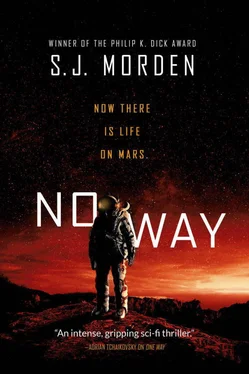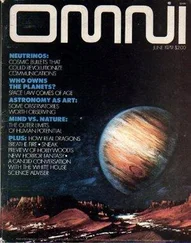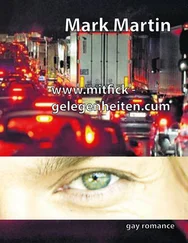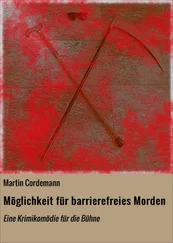It’s full night now. The blue glow from the dome is omnipresent, though not bright enough to read by. The skyline around me blocks direct view, but the light frames every high-rise to my left like a rising sun, and is reflected off the ones to my right. This is the reason there are no street lights in Rosewater. I make for Alaba Station, the clockwise platform, to travel around the edge of the dome. The streets are empty save the constable who walks past swinging her baton. I am wearing a suit so she does not care to harass me. A mosquito whines past my ear but does not appear to be interested in tasting my blood. By the time I reach the concourse, there is a patch of light sweat in each of my armpits. It’s a warm night. I text my flat to reduce internal temperature one degree lower than external.
Alaba Station is crowded with commercial-district workers and the queues snake out to the street, but they are almost all going anticlockwise to Kehinde Station, which is closest to the Opening. I hesitate briefly before I buy my ticket. I plan to go home and change, but I wonder if it will be difficult to meet up with Bola and her husband. I have a brief involuntary connection to the xenosphere and a hot, moist surge of anger from a cuckolded husband lances through me. I disconnect and breathe deeply.
I go home. Even though I have a window seat and the dome is visible, I do not look at it. When I notice the reflected light on the faces of other passengers, I close my eyes, though this does not keep out the savoury smell of akara or the sound of their trivial conversation. There’s a saying that everybody in Rosewater dreams of the dome at least once every night, however briefly. I know this is not true because I have never dreamed of the place.
That I have somewhere to sit on this train is evidence of the draw of the Opening. The carriages are usually full to bursting, and hot, not from heaters, but from body heat and exhalations and despair.
I come off at Atewo after a delay of twenty-five minutes due to a power failure from the North Ganglion. I look around for Yaro, but he’s nowhere to be found. Yaro’s a friendly stray dog who sometimes follows me home and to whom I feed scraps. I walk from the station to my block, which takes ten minutes. When I get signal again, my phone has four messages. Three of them are jobs. The fourth is from my most demanding employer.
Call now. And get a newer phone implant. This is prehistoric.
I do not call her. She can wait.
I live in a two-bed partially automated flat. Working two jobs, I could get a better place with fully humanised AI if I wanted. I have the funds, but not the inclination. I strip, leaving my clothes where they lie, and pick out something casual. I stare at my gun holster, undecided. I do not like guns. I cross the room to the wall safe, which appears in response to signals from my ID implant. I open it and consider taking my gun. There are two magazines of ammo beside it, along with a bronze mask and a clear cylinder. The fluid in the cylinder is at rest. I pick it up and shake it, but the liquid is too viscous and it stays in place. I put it back and decide against a weapon.
I shower briefly and head out to the Opening.
How to talk about the Opening?
It is the formation of a pore in the biodome. Rosewater is a doughnut-shaped city that surrounds the dome. In the early days we actually called it the Doughnut. I was there. I saw it grow from a frontier town of tents and clots of sick people huddling together for warmth into a kind of shanty town of hopefuls and from there into an actual municipality. In its eleven years of existence the dome has not taken in a single outsider. I was the last person to traverse it and there will not be another. Rosewater, on the other hand, is the same age and grows constantly.
Every year, though, the biodome opens for twenty or thirty minutes in the south, in the Kehinde area. Everyone in the vicinity of the opening is cured of all physical and some mental ailments. It is also well known and documented that the outcome is not always good, even if diseases are abolished. There are reconstructions that go wrong, as if the blueprints are warped. Nobody knows why this happens, but there are also people who deliberately injure themselves for the sole purpose of getting “reconstructive surgery.”
Trains are out of the question at this time, on this night. I take a taxi, which drives in the opposite direction first, then describes a wide southbound arc, taking a circuitous route through the back roads and against the flow of traffic. This works until it doesn’t. Too many cars and motorbikes and bicycles, too many people walking, too many street performers and preachers and out-of-towners. I pay the driver and walk the rest of the way to Bola’s temporary address. This is easy as my path is perpendicular to the crush of pilgrims.
Oshodi Street is far enough from the biodome that the crowd is not so dense as to impede my progress. Number 51 is a tall, narrow four-storey building. The first door is propped open with an empty wooden beer crate. I walk into a hallway that leads to two flats and an elevator. On the top floor, I knock, and Bola lets me in.
One thing hits me immediately: the aroma and heat blast of hot food, which triggers immediate salivation and the drums of hunger in my stomach. Bola hands me field glasses and leads me into the living room. There is a similar pair dangling on a strap around her neck. She wears a shirt with the lower buttons open so that her bare gravid belly pokes out. Two children, male and female, about eight or nine, run around, frenetic, giggling, happy.
“Wait,” says Bola. She makes me stand in the middle of the room and returns with a paper plate filled with akara, dodo and dundu, the delicious street-food triad of fried beans, fried plantain and fried yam. She leads me by the free hand to the veranda, where there are four deckchairs facing the dome. Her husband, Dele, is in one, the next is empty, the third is occupied by a woman I don’t know, and the fourth is for me.
Dele Martinez is rotund, jolly but quiet. I’ve met him many times before and we get along well. Bola introduces the woman as Aminat, a sister, although the way she emphasises the word, this could mean an old friend who is as close as family rather than a biological sibling. She’s pleasant enough, smiles with her eyes, has her hair drawn back into a bun and is casually dressed in jeans. She is perhaps my age or younger. Bola knows I am single and has made it her mission to find me a mate. I don’t like this because… well, when people matchmake, they introduce people to you whom they think are sufficiently like you. Each person they offer is a commentary on how they see you. If I’ve never liked anyone Bola has introduced me to, does that mean she doesn’t know me well enough, or that she does know me but I hate myself?
I sit down and avoid talking by eating. I avoid eye contact by using the binoculars.
The crowd is contained in Sanni Square—usually a wide-open space framed by shops that exist only to exploit visitors to the city, cafés that usually cater to tired old men, and travel agents—behind which Oshodi Street lurks. A firework goes off, premature, a mistake. Most leave the celebrations till afterwards. Oshodi Street is a good spot. It’s bright from the dome and we are all covered in that creamy blue electric light. The shield is not dazzling, and up close you can see a fluid that ebbs and flows just beneath the surface.
The binoculars are high-end, with infrared sensitivity and a kind of optional implant hack that brings up individual detail about whoever I focus on, tag information travelling by laser dot and information downloading from satellite. It is a bit like being in the xenosphere; I turn it off because it reminds me of work.
Читать дальше












